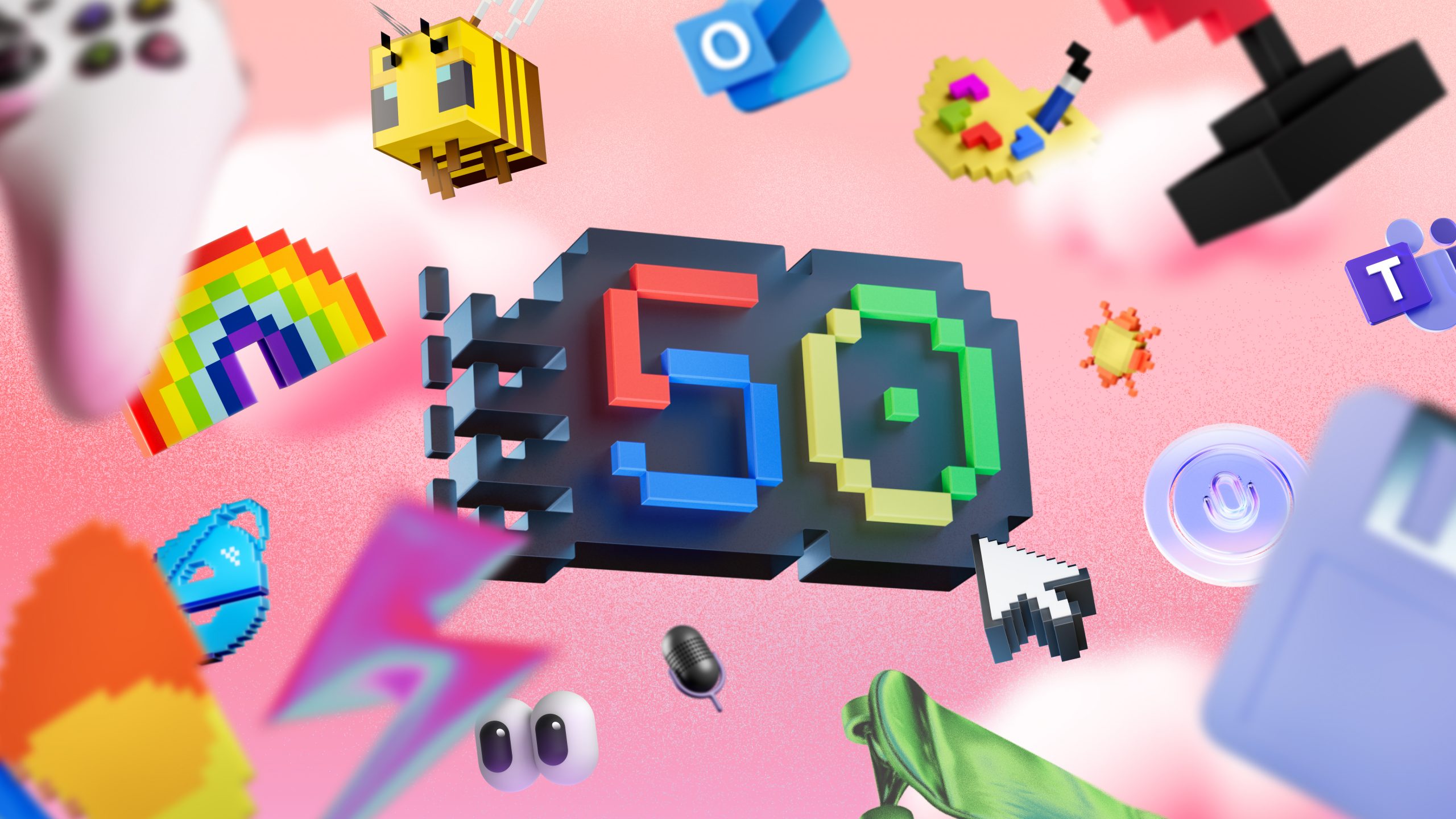Microsoft at 50: A Journey of Innovation, Impact, and Imagination
Microsoft is turning 50 this year. Well, that’s a long time in tech—an industry where companies rise and fall in the blink of an algorithm. But did you know how this global giant started? Two young dreamers, a garage, and a vision to put a computer on every desk and in every home.
Today, we take you down memory lane. From its humble beginnings in 1975 to becoming one of the most influential tech companies in the world, Microsoft’s story is more than just software and servers. It’s a story of reinvention, resilience, and real-world impact—even here in Africa.
It all began with MS-DOS and a groundbreaking deal with IBM. But it was the launch of Windows that truly made Microsoft a household name. From Windows 95’s buzzing start-up sounds to Windows XP’s iconic blue sky, each version didn’t just change computing—it changed culture. Microsoft made computers feel familiar, approachable, and powerful.
Powering Productivity Across Generations
Then came the office suite. Word, Excel, and PowerPoint—tools that redefined how we work, learn, and communicate. In Africa, Microsoft Office became a rite of passage. For many, their first typed document, first budget, or first presentation was done using these tools. It was more than software—it was a stepping stone into the professional world.
But the journey hasn’t been without its bumps.
In the late 1990s, Microsoft found itself at the center of a historic antitrust case. The U.S. government accused the company of monopolistic practices—particularly bundling Internet Explorer with Windows. The case marked a turning point for tech regulation and forced Microsoft to reckon with its market dominance. It was a sobering reminder that with great power comes great scrutiny.
And not every product has been a win. Remember the Zune? Or Windows Mobile? Both were bold attempts to compete with Apple’s iPod and the rise of smartphones. But they didn’t quite catch on. These moments didn’t break Microsoft—but they reminded the company that innovation also means embracing failure, learning fast, and moving forward.
Also Read: Kwibuka 31: Remembering the Past, Rebuilding a Nation
Fast forward to the 2010s. With Satya Nadella at the helm, Microsoft pivoted into the cloud. Azure, Teams, and AI tools began to define the new Microsoft—nimble, collaborative, and future-facing. It wasn’t just about dominating desktops anymore. It was about building ecosystems and platforms that others could thrive on.
Internally, Nadella’s leadership marked a shift in culture—from “know-it-all” to “learn-it-all.” But transforming company culture at such a scale wasn’t easy. It required Microsoft to challenge itself, dismantle silos, and prioritize empathy and inclusion. And while progress has been made, the journey toward a more diverse and inclusive tech space continues.
Africa is not just a market for Microsoft—it’s a source of innovation. The launch of the Africa Development Center (ADC) in Nairobi and Lagos was a bold move to harness local talent and develop solutions for the world from the continent. Today, Microsoft is investing in skilling programs, supporting startups, and working with African governments to build an inclusive digital future.
Did you know? Microsoft has pledged to be carbon-negative by 2030—and even aims to remove all the carbon it has emitted since its founding in 1975. Sustainability is no longer a side project—it’s part of the core strategy.
From creating Xbox to acquiring LinkedIn and GitHub, Microsoft has constantly evolved. Its work in generative AI—especially through the OpenAI partnership—is reshaping how we work and live. Whether it’s using Copilot to summarize emails or leveraging AI for medical research, Microsoft continues to push the boundaries of what’s possible.
But even AI brings new questions—on ethics, fairness, data privacy, and access. Microsoft has acknowledged this and continues to invest in responsible AI practices. The hope is to build tools that empower people—not replace them.
Fifty years in, Microsoft is not slowing down. Its focus on AI, sustainability, education, and equity points to a future where technology serves humanity better. And from Nairobi to New York, it’s clear: the story isn’t over—it’s only getting started.
Happy 50th, Microsoft. Here’s to building the next generation of tech—together .Want to see how far Microsoft has come? Watch this YouTube video moderated by Copilot, which is a conversation between Bill Gates, Steve Ballmer, and Satya Nadella on Microsoft’s 50th anniversary.
